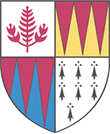What is the GPD Framework?
Graduate school at Stanford offers countless opportunities to grow and develop academically, personally, and professionally.
The VPGE office designed the GPD Framework to help you make the most of your time at Stanford by identifying six important areas of development and providing an interactive tool that uses your input to connect you with the campus-wide resources and learning experiences that you need to reach your potential and meet your goals. Use the Framework to reflect on your goals and strengths, explore learning opportunities, and dive in to new experiences all year long.
Who is it meant for?
The GPD Framework is meant to be used by all graduate students, in all fields, and in all stages of their graduate careers. The domains and resources it describes are complementary to your degree program, and can be used at any point from your first day at Stanford to your last.
How do I use it?
Reflect:
Begin by reflecting on your graduate career. Which domains would you like to work on? What skills would you most like to build? Decide which areas to tackle first, and start with your most important priorities. You can always return to other areas later.
Explore:
Use the Graduate Professional Development Framework’s unique discovery tool to find out what’s available on campus to support you in these areas. Decide which domain(s) you would like to work on, and then select the kind of learning experience you’re looking for by adjusting the intensity slider.
Based on your input, the GPD Framework draws from Stanford’s abundant resources, opportunities, and events to deliver you a customized list of recommendations that can help you build skills, gain experience, and truly make the most of your graduate career.
Dive In:
Graduate students have busy schedules, and it can be challenging to find the time and energy to accomplish everything you’d like. The GPD Framework provides additional details to help you evaluate which opportunities to invest in:
- Time: Measures estimated time commitment, including, when possible, preparation and/or assignment time.
- Learning Environment: Identifies the learning environment as individual (learn mostly by self), one-on-few (learn with one other or small group), and group (learn mostly with others).
- Depth: Estimates how deeply the recommendation delves into its topic. Tip of the iceberg recommendations might introduce or give an overview of a topic, while whole iceberg recommendations will go into greater depth.
- Intensity: Synthesizes time, depth, and learning environment as well as other subjective factors, like the expectation of active vs. passive participation.
Use the filters and your recommendations’ time, learning environment, depth, and intensity details to create a sustainable development plan that takes into account your schedule, energy level, content goals, and learning style. Schedule events ahead of time, and make sure to set aside time to explore other types of resources as well.
Return:
If you signed in with your SUNet ID, your results will be saved securely so you can return to your recommendations list whenever you’d like. You can also use the “My Progress” tool to see which areas of the Framework you have already explored, and which you have yet to discover.
The tool is here for you whenever you need it! Return to the Framework often, as your priorities change, we add new resources, and you meet and set your goals.
Launch Interactive GPD Framework (WebAuth) Launch Interactive GPD Framework (Public)
| SPECIALIZED CONTENT KNOWLEDGE & SKILLS | |
|---|---|
| Learning advanced disciplinary knowledge & skills |
|
| Conducting research & scholarship |
|
| Collaborating within & across disciplines |
|
| Teaching | |
| Understanding principles of teaching & learning |
|
| Using effective instructional strategies |
|
| Advising & mentoring |
|
| Communication | |
| Writing |
|
| Speaking |
|
| Applying digital & multimedia tools |
|
| Leadership & Management | |
| Developing leadership & entrepreneurial skills |
|
| Managing people & projects |
|
| Negotiating & resolving conflicts |
|
| Personal Development | |
| Behaving ethically & with professional integrity |
|
| Valuing diverse experiences & perspectives |
|
| Solving problems & thinking creatively |
|
| Career Development | |
| Exploring career options |
|
| Developing job search skills |
|
| Networking |
|



